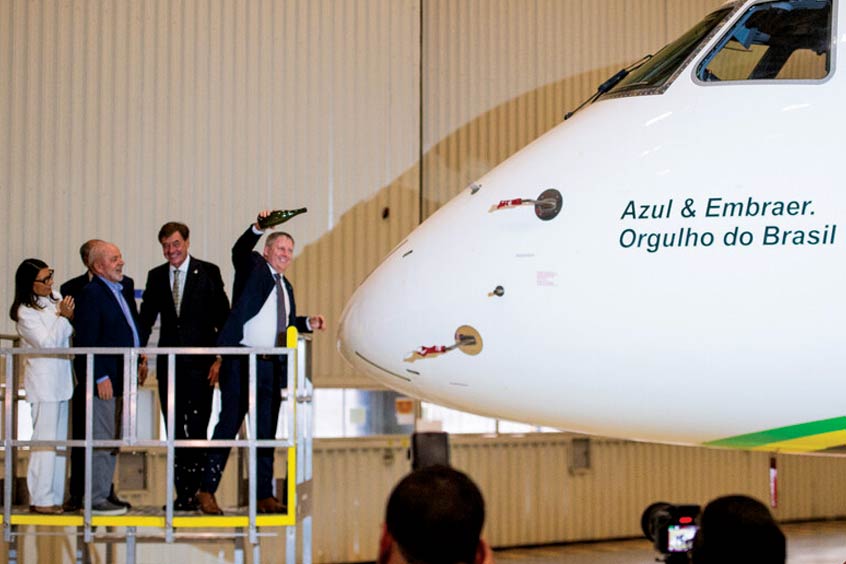More than 30 representatives of Europe's aerospace industries are meeting this week in Trollhättan to discuss how future aircraft engines shall be more environmentally compatible.
Hosting the gathering is Volvo Aero, which has chosen to convene the meeting at the Production Technical Center (PTC) in Innovatum.
How must aircraft engine noise and fuel consumption be reduced to minimize the environmental impact as much as possible? This is one of the questions being addressed by the European research project DREAM (valiDation of Radical Engine Architecture systeMs), in which Volvo Aero is a participant.
Each year, Volvo Aero invests major sums in research and development aimed at improving aircraft engines, primarily with regard to the environment. This involves such aspects as reducing fuel consumption through developing efficient engine components with the lowest weight possible. Another element involves developing components that reduce noise from aircraft engines as much as possible.
Within the framework of DREAM, Volvo Aero will test concepts to reduce noise and fuel consumption.
DREAM, which started in February 2008, is a 40 MEuro project that will carry on for three years. A total of 44 aerospace companies, universities and research institutes in Europe are involved. Participants include such major companies as Rolls-Royce, Snecma, Airbus and MTU.
DREAM involves development and testing of radical engine concepts to reduce the aircraft's emissions and environmental impact. This includes the development and validation of novel engine systems. The so-called contra rotating open-rotor engine, which is a further development of fuel-efficient propeller engines to be extended to short/medium range aircraft, is also being examined. In comparison to traditional turbofan engines there is no casing around the engine for the open-rotor engine, which allows for far large propeller diameters thus improving efficiency. Finally there is an activity to select and test alternative fuels with thermo-chemical characteristics acceptable for aeronautics.
A number of those working with DREAM are gathering for a two-day meeting in Trollhättan, where results and the technical advances from the first half year will be summarized for the EU's research council representatives.
It is no coincidence that Volvo Aero chose to arrange the meeting at the Production Technical Center. A co-operation between Volvo Aero, Innovatum Teknikpark, University west and Saab Automobile, PTC has been established to provide the conditions for conducting world-class development projects. In its environmental efforts, Volvo Aero cooperates with research institutes as well as PTC/Innovatum, University West and in a united front with other aircraft engine companies in Europe, of which the DREAM project is an example.
"From Volvo Aero's viewpoint, we believe that joint projects and cooperation are key to successfully develop new environmentally friendly aircraft engines," says Linda Ström, DREAM project leader at Volvo Aero.
| Contact details from our directory: | |
| GKN Aerospace Engine Systems | Compressors, Shafts & Shaft Assemblies, Combustion Chambers, Engine Nozzles, Engine Housings, Engine Parts, Turbofan Engines, Exhaust Systems |
| Related directory sectors: |
| Engines |
Weekly news by email:
See the latest Bulletin, and sign up free‑of‑charge for future editions.

Altair supports Manta's hybrid electric eVSTOL

T-7A Red Hawk passes three key testing milestones

Boeing takes over GKN's St Louis operations
